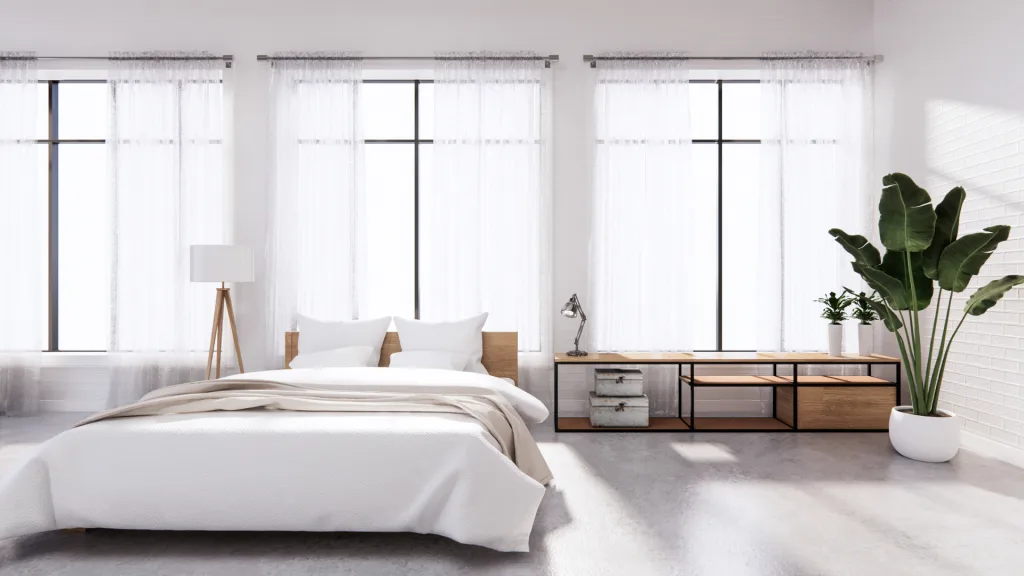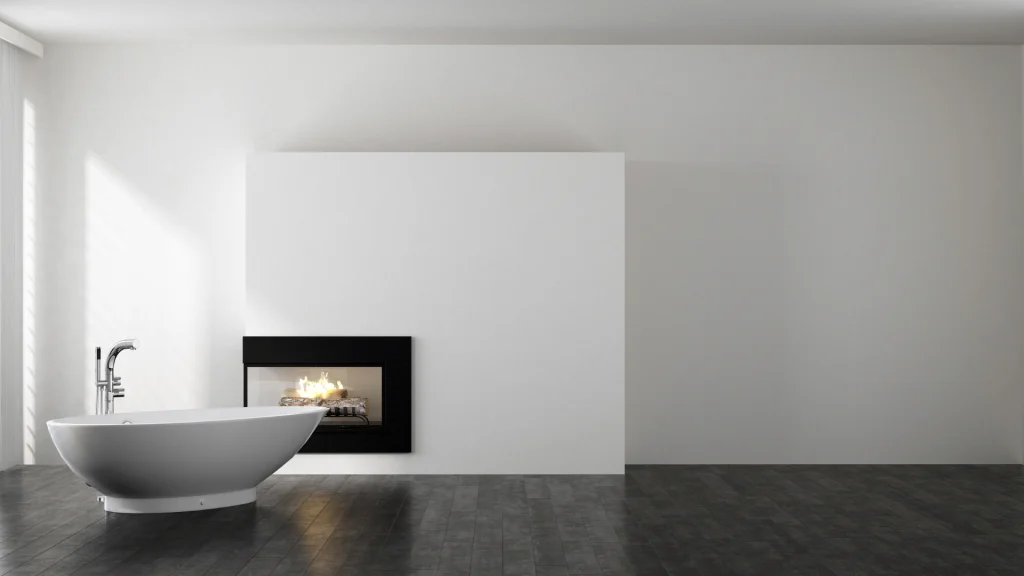The spectrum of possession accumulation ranges from hoarding disorder to compulsive decluttering. Obsessive-compulsive disorder can manifest itself as an excessive desire to keep or have less stuff.
In this article you will begin to recognize the difference between enthusiasm for the minimalist lifestyle and the mental health condition of extreme decluttering. Decluttering is a positive step towards minimalism; but, too much of a good thing turns into obsessive-compulsive behavior.
The cultural embrace of decluttering recognizes keeping a tidy home is not about getting rid of everything. A minimalist lifestyle is about keeping the things that bring you joy and getting rid of the things that don’t.
Wanting to maintain a clean house and clutter free living space is generally accepted as a good idea. However, it shifts from being a healthy behavior to an obsessive-compulsive disorder based on compulsive urges.
Obsessive Compulsive Decluttering Definition
Obsessive-compulsive decluttering is a more specific form of OCD. Compulsive behavior is beyond a desire for a particular preference. Obsessive-compulsive disorder decluttering creates a compulsive urge to eliminate personal belongings.
A person experiencing clutter phobia will habitually feel that they have too much stuff. Daily life becomes overwhelmed by severe anxiety relating to eliminating objects. Obsessive decluttering is part of a subtype of OCD because OCD sufferers have persistent anxiety and stress surrounding their obsessive thoughts.
Synonyms: Obsessive decluttering, Obsessive compulsive spartanism, Obsessive-compulsive spartanism, Spartanism
Understanding Obsessive Compulsive Decluttering
While most psychologists recognize hoarding as a type of disorder under the mental health condition obsessive compulsive disorder, many do not acknowledge spartanism. The opposite of hoarding is the under-researched area of spartanism.
Homes of compulsive declutterers are not just void of personal belongings they are also extremely clean. Obsessive decluttering blows past reasonable limits of item reduction.
Many times compulsive decluttering is sparked by a traumatic or stressful life event. Someone’s healthy attachment to stuff can be replaced by negative thoughts.
Instead of finding comfort in being surrounded by personal possessions they find satisfaction with maintaining empty houses. Their homes might be described as void of personality, stark, or sterile.

Hoarding Disorder vs. Spartanism
Extreme patterns of behavior on either end of the obsessive compulsive disorder spectrum are a concern. Both compulsive accumulation and compulsive decluttering are considered a mental illness.
If you feel like you are having severe anxiety or compulsive urges to keep or purge items, don’t be shy about seeking professional help. Online therapy is easier than ever in terms of price and accessibility.
Any subtype of obsessive-compulsive disorder could be handled through the individual therapy button above. Your therapist can work with you on healthy ways to manage your OCD.
Best Books on Decluttering
For those of you who aren’t feeling obsessed with decluttering, maybe you are looking for some motivation to get started. I tend to avoid books that set extreme minimalism goals.
One of the best ways to understand nuanced topics is to read about it from different perspectives. Knowledge is always a good thing.
These books provide valuable insights into the specific category of decluttering. They can also provide inspiration and motivation from their own experience creating a happy life from decluttering.
Free Decluttering Schedule
For the average person starting a decluttering journey feels just as stressful as an obsessive compulsive disorder. Not knowing where to start is typical. Becoming a minimalist and adjusting to a simple life with less stuff is a learned behavior.
Experts on minimalism have a clear understanding of the proper sequence to increase success. There are anticipated patterns of behavior which a decluttering schedule can thwart. Keep yourself from quitting before the finish line by using my 31 day decluttering schedule.
You can start by downloading a one month decluttering starter guide. Creating a decluttering schedule can help you stay organized and focused on your decluttering goals. It can also help you avoid feeling overwhelmed and ensure that you make progress every day.
This decluttering schedule works along side a series of videos and blog posts to motivate you along the way. Bookmark: One Month Minimalist Challenge for when you have the free time to get started.
Living with Less Stuff and Decluttering
Living with less stuff can be liberating and can help you focus on the things that matter most in your life. However, it’s essential to understand that living with less stuff doesn’t mean that you have to get rid of everything.
To live with less stuff, focus on keeping the things that bring you joy. Many people call the happy life between extreme hoarding and obsessive decluttering, balance. I prefer to call that happy medium harmony.
Daily life for people in harmony will include a mix of things, people, and memorable moments. Minimalism has never been about deprivation. Instead, minimalism seeks to eliminate the unnecessary to make room for what is truly important.
Untangling the social expectations and family pressures to maintain a certain lifestyle is a journey. The mindset shift that happens during the decluttering process is just as important as re-evaluating your attachment to physical possessions.

Decluttering Checklist Printable
A decluttering checklist printable can be a helpful tool to keep track of your daily progress and stay motivated. It can also help you remember how far you’ve come when your mind blocks out all the hard work you’ve put in.
This particular decluttering checklist is designed to help you eliminate 496 items from your possession. Make a check mark every time you donate, re-home, or throw away an unnecessary object. Those check marks add up fast!
If you use one of my free downloads like the decluttering checklist or decluttering schedule, feel free to tag me in your progress on social media. I love connecting with people embarking on their decluttering minimalist journey.
Extreme Decluttering
Straying from conscious behavior to compulsive behavior will cause emotional distress and create an extremely stressful life. Choosing to declutter and live with less stuff is different than intrusive thoughts creating mental health problems.
Extreme decluttering is when you get rid of everything compulsively, including things that you may need in the future. While extreme decluttering can cause significant problems, it is harder to diagnose than other obsessive compulsive disorders.
People often don’t seek professional help from a psychologist because it isn’t seen as a problem by onlookers. Because nobody is alerting a extreme declutterer to their compulsive spartanism, they don’t have the vocabulary to identify their disorder.
To avoid extreme decluttering, it’s essential to focus on keeping the things that bring you joy and only getting rid of the things that don’t. It’s also crucial to consider the needs of your family and ensure that you’re not getting rid of things that they may need.

Mistakes When Decluttering
One of the most common mistakes people make when they begin decluttering is not having a plan or a specific goal in mind. Many people start decluttering without knowing what they want to achieve or how they want to organize their space, which can lead to feeling overwhelmed and not making much progress.
Another common mistake is trying to declutter everything at once. This can lead to feeling exhausted and discouraged. It’s important to take a step-by-step approach, starting with small manageable tasks rather than trying to declutter the entire house all at once.
The most frustrating mistake I come across is not being decisive enough when it comes to getting rid of items. People often hold onto items they no longer need or use because they are unsure of what to do with them, or they are afraid of regretting getting rid of them later.
Finally, a detrimental mistake is not setting a deadline for decluttering. People tend to procrastinate and put off decluttering which can lead to never getting around to it.
Minimalist Lifestyle
The vast majority of readers will embark on their decluttering journey with hesitation and frustration. If instead you are experiencing obsessive thoughts, clutter phobia, and severe anxiety causing you to engage in compulsive decluttering, consult a clinical psychologist.
These decluttering strategies can pave the way to a simple life with less stress. Filling your free time with more of what’s important will by default allow you to spend less time doing things you dislike.
Minimalism isn’t about having nothing, it’s about having the right things to create the happy life of your dreams.



Veronica, your insights on minimalism versus compulsive decluttering are eye-opening. Your emphasis on finding balance between keeping what brings joy and avoiding extreme purging resonates deeply. One aspect to ponder further is ensuring sentimental items have a place in our minimalist journey, allowing us to cherish memories without clutter. Thank you for providing such valuable guidance!